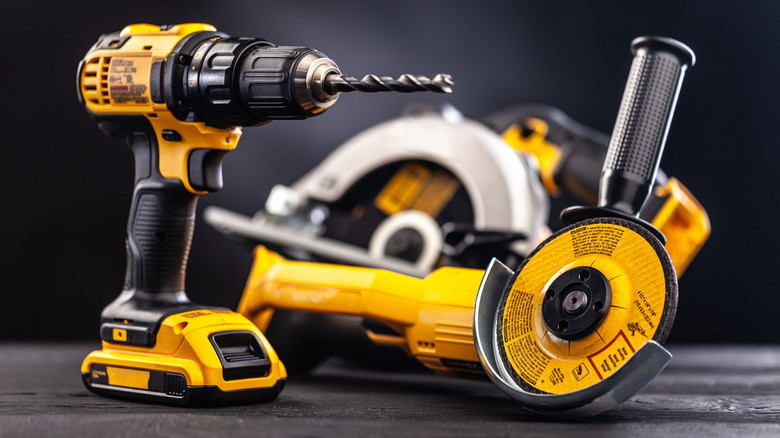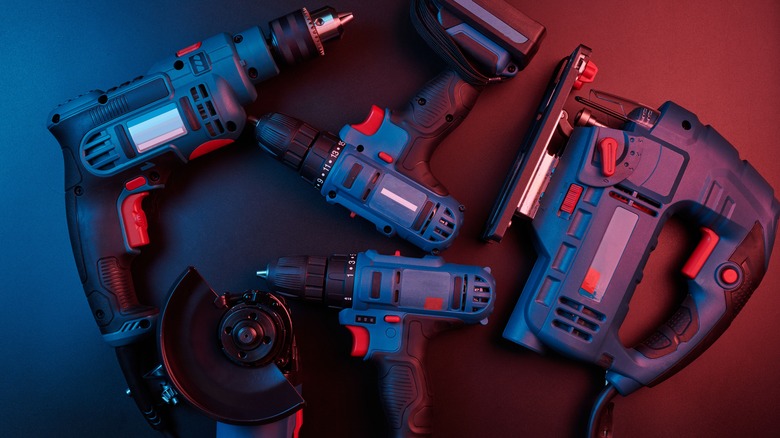Corded Vs Cordless Power Tools: Which Are Better?
Picking the right tool for the job isn't always about whether the task requires a hammer, saw, drill, and so on. You may also have to decide if you're better off using a cordless power tool or a corded one that needs to be plugged into an outlet to function. In those kinds of situations, how do you choose?
There are benefits and drawbacks to both kinds of power tools, and whether or not any of those nuances deter you depends on how you expect to use them. Before you attempt to decide which version of a given tool you want, take some time to think about the projects you'll need them for. Will you be working primarily in a garage or workshop? Do you plan on taking your tools with you to offsite jobs? Is space a limiting factor? How long do you believe the tools will have to sit unused before you'll be powering them up again?
Once you've considered the probable scenarios in which you'll be using them, it's time to start thinking about what really sets corded and cordless power tools apart.
What are the differences?
The most obvious distinction is the cord itself — or lack thereof. Buying a cordless tool often comes with the added expense of a battery, though these are sometimes interchangeable with other tools from the same brand. Corded tools also aren't as easy to move around with and can get caught or create tripping hazards, while cordless tools are far less physically restricted but also tend to weigh a bit more due to the need for a battery pack.
Cordless tools may be the better option for maneuverability, but batteries eventually run out of juice. Meaning cordless power tools can only be used for so long before you'll either have to set them aside to recharge, or swap in a replacement battery. Conversely, corded tools don't have that drawback since they're plugged directly into a consistent power source — so they'll work until the job is done or the tool itself breaks down. Though they won't do you much good in a location with no power outlets, or during a blackout.
Actual power is also a factor when comparing corded and cordless, because cordless tools are limited by a battery's voltage capacity (anywhere from 12V to 54V). These values also vary based on the type of tool being used, but essentially you're unlikely to come across a cordless tool that can exceed 54V. Corded tools, on the other hand, can reach between 110V and 240V (depending on the location), and more voltage means more overall power.
Corded or cordless?
Ultimately, deciding which kind of power tool is better depends on the context. Suppose you plan to perform a lot of time-consuming tasks that require some heavy-duty power. In that case, corded tools are generally the better option due to their ability to run consistently and at higher voltages. Cordless tools are a much better fit if you're moving around a lot, working in cramped quarters, or can't rely on access to a power outlet.
Some of these nuances can be mitigated or worked around to a point, though. For example, an extension cord (one that you've made sure is safe to use with your tools) will allow you to use a corded tool well beyond its regular tethered range — but this can also lead to more struggling to navigate around spaces and avoid tripping. Similarly, if you plan ahead and have more than one compatible battery ready to go, you can keep using a cordless tool once its initial charge runs out or even alternate between several batteries so one or two are always charging while another is being used — though it will still require pausing your work to change them out.
It might even behoove you to have an assortment of both corded and cordless tools if that's a viable option for you, to better fit a wider variety of on-site needs. The choice is yours to make.


